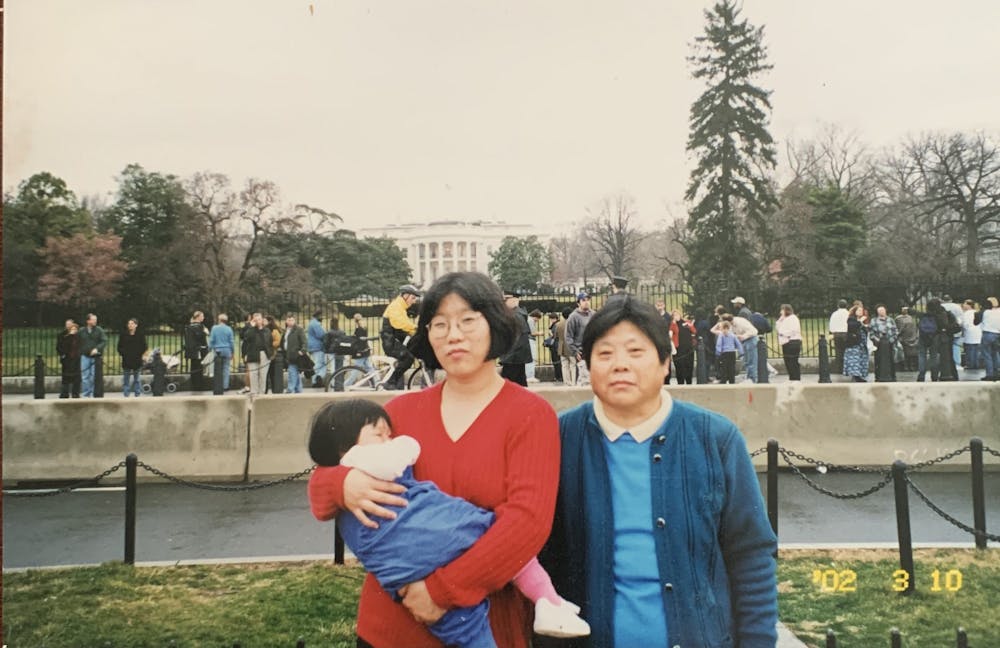She stands like a porcelain doll made of steel. Her hair is cropped short in a masculine style, and I can still see her standing staunchly by the kitchen sink, slicing carrots with aggressive precision. My maternal grandmother, or lao lao, is my last living grandparent, the only grandparent I have significant memory of.
When I was born, she flew halfway across the world to help my parents with child care. Years later, she would depart again from Beijing for my younger brother. By her second visit, I was already a teenager in the process of stuffing my Asian American identity into the coveted white American box.
Growing up, I had the fortune of attending a dual-language elementary school, splitting my days half in Chinese and half in English. I remember elementary school as Lunar New Year parties, fighting over moon cakes and happily trading off my mother’s dumplings for fruit rollups.
I spent my first five grades shielded from the inevitable racism and anti-Asian stereotypes I would later experience. Yet even then, cultural competency eluded me.
Following the 2008 Sichuan earthquake, my class spent two weeks rehearsing “Songbie,” or "Farewell Song," to perform for our school. Liking the simple melody, I remember singing it happily to my mom. Upon hearing my cheerful voice, my mom set the laundry she was folding down, and in a gentle voice, told me it was a sorrowful song about losing people you love. I didn’t actually understand the gravity of the prose I was singing.
I was in middle school when my grandmother came to help raise my brother. I was 13, expressively chatting with my peers, yet communicated to her only through shy head bobs and hand gestures. I remember ignoring her, too.
One day, my neighbor, Michelle, the white mother of my adopted Asian friend, stopped by my house. When she saw my lack of interaction with my grandmother, she marched over, pulled me aside and scolded me. She scolded me for disrespecting my grandmother, for choosing teenage ignorance over bonding with my grandmother, for letting my time with her slip through my ungrateful hands.
I remember feeling shocked, my head spinning over the stern words from someone else’s parent. I was flushed with anger. How dare she? How dare she shame me for behavior even I didn’t understand? I didn’t know how to reckon with abandoning my Chinese heritage at school while feeling shame for not being Chinese enough at home. I was so insecure in my Chinese language skills; my extroverted personality was reduced to head bobs and hand gestures. I was angry because, on the surface, Michelle was right. I was acting like a spoiled brat.
But she didn’t understand how profoundly I wished to be white. To have bigger eyes, a taller nose, lighter hair. To wear Lilly Pulitzer and Jack Rogers, to play tennis at the country club — not near the local elementary school where all the other Asians played. I bragged about not attending Chinese after school, about dodging my parents’ Chinese lessons, about my shiny new shoes and my predominantly white friend group.



